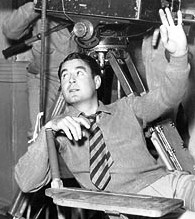A Quote by Nicole Krauss
To walk into a modern-day bookstore is a little bit like studying a single photograph out of the infinite number of photographs that cold be taken of the world: It offers the reader a frame.
Related Quotes
Photography has always been capable of manipulation. Even more subtle and more invidious is the fact that any time you put a frame to the world, it's an interpretation. I could get my camera and point it at two people and not point it at the homeless third person to the right of the frame, or not include the murder that's going on to the left of the frame. You take 35 degrees out of 360 degrees and call it a photo. There's an infinite number of ways you can do this: photographs have always been authored.
The inferiority of photographs to the best works of artists, so far as resemblance is concerned, lies in their catching no more than a single expression. If many photographs of a person were taken at different times, perhaps even years apart, their composite would possess that in which a single photograph is deficient.
There was as big a reaction after the revelations about Assad's chemical weapons. Nevertheless, that photograph did strike a singular chord. Which leads us to a larger fact: we don't understand why certain photographs create such an upheaval in one's soul. You look at them and go, "Oh my gosh." And that doesn't happen with television. It's unique to photography. Photographs are unique in that they are a frame abstracted out of reality, out of, in this case, a civil war. A single event can carry so much weight. And that is extraordinary.
Without doubt, matter is unlimited in extent, and, in this sense, infinite; and the forces of Nature mould it into an innumerable number of worlds. Would it be at all astonishing if, from the universal dice-box, out of an innumberable number of throws, there should be thrown out one world infinitely perfect? Nay, does not the calculus of probabilities prove to us that one such world out of an infinite number, must be produced of necessity?
The way in which the photograph records experience is also different from the way of language. Language makes sense only when it is presented as a sequence of propositions. Meaning is distorted when a word or sentence is, as we say, taken out of context; when a reader or listener is deprived of what was said before, and after. But there is no such thing as a photograph taken out of context, for a photograph does not require one. In fact, the point of photography is to isolate images from context, so as to make them visible in a different way.
In my couple of books, including Going Clear, the book about Scientology, I thought it seemed appropriate at the end of the book to help the reader frame things. Because we've gone through the history, and there's likely conflictual feelings in the reader's mind. The reader may not agree with me, but I don't try to influence the reader's judgment. I know everybody who picks this book up already has a decided opinion. But my goal is to open the reader's mind a little bit to alternative narratives.
Something happens between a novel and its reader which is similar to the process of developing photographs, the way they did it before the digital age. The photograph, as it was printed in the darkroom, became visible bit by bit. As you read your way through a novel, the same chemical process takes place.







































